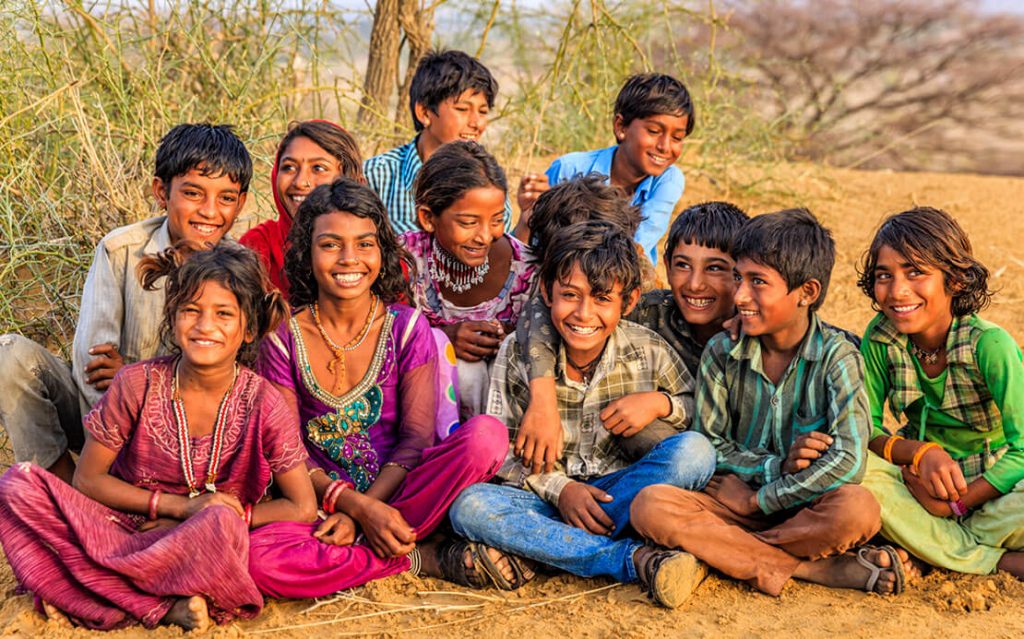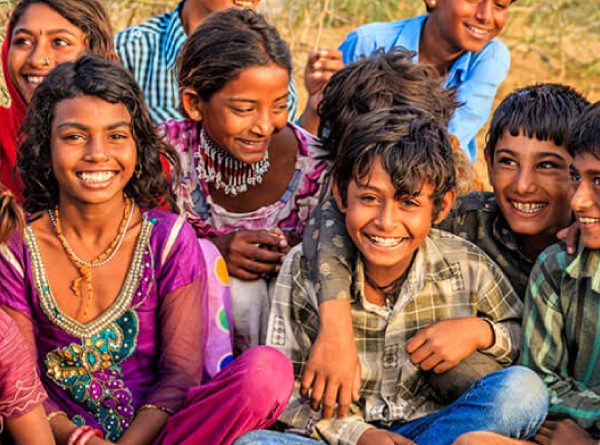Volunteering is a tremendous force that fosters good social change worldwide. The spirit of volunteering runs deep throughout India’s varied and dynamic nation, with numerous individuals devoting their time, skills, and money to elevate the less fortunate and effect significant change. Volunteering has become a fundamental element of Indian society, developing empathy, solidarity, and social responsibility from rural towns to busy metropolises. This article will examine the importance of volunteering in India, its influence on communities, and the remarkable stories of individuals who help others.
Volunteering in India: A Tapestry of Causes
India’s immense geography is home to many social, economic, and environmental concerns. Volunteering solves these difficulties on several levels. Volunteers in India are involved in various issues, from education and healthcare to environmental protection and women’s empowerment. Non-governmental organizations (NGOs) and community-based projects play an important role in coordinating and enabling these volunteer activities and offering venues for individuals to make significant contributions.
Education and Literacy:
Education is an excellent instrument for societal upliftment and empowerment. Volunteers are essential in bridging the gap in India, where access to excellent education remains a barrier for many. They serve as instructors, tutors, and mentors in schools, community centers, and non-governmental organizations to educate and assist impoverished youngsters.
Healthcare and Medical Aid:
The healthcare system in India confronts various challenges, particularly in rural areas and vulnerable groups. Volunteering in healthcare entails aiding at hospitals and clinics, performing health awareness campaigns, and assisting individuals in need.
Women’s Empowerment and Gender Equality:
India has made great progress toward gender equality, but difficulties remain. Women’s empowerment volunteering entails empowering women via education, skill development, and business projects. Volunteers help by organizing workshops, offering counseling and legal assistance, and fighting for gender equality and women’s rights.
Volunteering in India: Empowering Education

Education is frequently viewed as the bedrock of development and social mobility. Volunteers in India are actively committed to providing access to excellent education, particularly in rural and underserved regions. They serve as instructors, mentors, and facilitators, bridging the educational divide and providing youngsters with information and skills. Volunteers elevate communities by boosting reading, computer literacy, and vocational training, providing doors to brighter futures.
Bridging the Educational Divide:
The education landscape in India is marked by a sharp split between urban and rural areas, as well as socioeconomic inequities. Empowering Education seeks to overcome this gap by providing all students, regardless of background, access to high-quality education and learning tools. Volunteers provide their time, talents, and resources to help poor schools, run extracurricular activities, and mentor and tutor students.
Quality Education for All:
Education empowerment in India goes beyond simply providing access and focuses on delivering high-quality learning experiences. Volunteers play an important role in refining teaching approaches, encouraging interactive learning, and improving the learning environment.
Technology in Education:
Technology has emerged as a significant educational facilitator in an increasingly digital society. Volunteers use technology to improve access to high-quality educational resources, especially in distant and underprivileged places. They establish computer laboratories, train people in digital literacy, and create instructional apps and online platforms. Volunteers provide children with digital skills, widen their perspectives, and prepare them for the digital era by incorporating technology into the classroom process.
Volunteering in India: Healthcare for All
The healthcare industry confronts various obstacles in India, including inadequate access to medical facilities and resources, particularly in distant areas. Volunteering is critical in reducing these discrepancies. Medical experts and volunteers labor diligently to arrange health camps, give medical help, and improve hygiene and preventative measures awareness. Their activities help to improve healthcare results, save lives, and promote well-being.
Addressing Accessibility Challenges:
Regional differences, limited infrastructure, and a scarcity of healthcare personnel, particularly in rural and isolated areas, define India’s healthcare environment. Several projects have been launched to solve these concerns. Medical and non-medical volunteers are critical in organizing health camps, mobile clinics, and outreach programs to deliver essential healthcare services to disadvantaged populations.
Strengthening Primary Healthcare:
Primary healthcare is the foundation of every healthcare system. Volunteers in India help to promote primary healthcare by actively engaging in vaccination efforts, maternity and child health programs, and preventative care campaigns.
Promoting Healthcare Awareness:
Individuals must be health-literate and knowledgeable to make educated decisions regarding their health. Volunteers participate in educational campaigns, community seminars, and health awareness drives to communicate important information about illnesses, cleanliness, nutrition, and family planning. Volunteers allow individuals to take proactive actions toward preserving their well-being and obtaining proper treatment when necessary by equipping them with information.
Volunteering in India: Environmental Stewardship
India’s diverse biodiversity and vulnerable ecosystems necessitate concerted conservation efforts. Volunteers actively participate in afforestation, waste management, renewable energy, and wildlife conservation programs. Volunteers work as environmental guardians, protecting natural resources for future generations by organizing tree-planting initiatives, lobbying for sustainable practices, and cleaning contaminated regions.
Biodiversity Conservation:
India has a diversified ecology, includes forests, wetlands, and coastal regions, which are critical for biodiversity conservation. Environmental volunteers collaborate with government agencies, non-profit groups, and local communities to conserve and restore these ecosystems. They do things like reforestation, habitat restoration, and wildlife conservation. Volunteers play an important role in maintaining India’s unique flora and wildlife for future generations by creating awareness about the value of biodiversity.
Sustainable Agriculture and Land Management:
Feeding a rising population while limiting environmental damage is a problem for India’s agricultural economy. Volunteers support sustainable agricultural activities by encouraging organic farming, lobbying for ethical pesticide usage, and putting in place water conservation methods. They also help farmers to implement climate-smart agriculture practices, including crop diversification and efficient irrigation.
Waste Management and Recycling:
India is dealing with waste management difficulties such as inappropriate disposal and the rising issue of plastic pollution. Environmental volunteers regularly participate in waste management activities such as cleaning drives, garbage segregation, and recycling advocacy. They educate communities on the necessity of trash reduction, reuse, and recycling, lessening the pressure on landfills and limiting environmental deterioration caused by incorrect garbage disposal.
Volunteering in India: Women’s Empowerment
Volunteering is crucial in empowering women and fostering gender equality in India. Numerous groups aim to improve women’s economic and social status by providing vocational training, microfinance options, and women’s rights awareness campaigns. Volunteers help through mentoring, giving skill-based training, and providing safe spaces for women to express their problems and goals.
Education and Skill Development:
Access to quality education and skill development opportunities is critical to women’s empowerment in India. Education is essential for women to make educated decisions, seek further education, and develop successful jobs.
Economic Empowerment and Entrepreneurship:
Economic empowerment is critical to women’s empowerment in India. Encouragement of entrepreneurship and possibilities for women to engage in income-generating activities assists them in achieving financial independence, breaking the cycle of poverty, and contributing to the country’s economic prosperity.
Social and Legal Rights:
In India, women’s empowerment also includes the battle for social and legal rights. This involves tackling gender-based violence, and discrimination against women, and advocating for women’s rights. Volunteers and organizations aim to increase gender equality awareness, push for legislation reforms, give counselling and support services to survivors of abuse, and improve access to justice.
Volunteering in India: The Catalyst for Social Change
Beyond the specific issues, volunteering catalyzes larger societal change in India. It encourages inclusion, generates a feeling of community, and breaks down societal boundaries. Volunteers frequently come from various backgrounds but are united by their desire to make a difference. They encourage others to adopt the spirit of volunteerism through their acts, producing a beneficial ripple effect.
Grassroots Activism and Community Mobilization:
In India, grassroots action is a critical engine for social change. Individuals, clubs, and volunteers working at the community level may help mobilize communities, raise awareness about social concerns, and drive change. They start and join local initiatives, advocate for underprivileged populations, and fight to eliminate social injustices.
Empowering Marginalized Communities:
Empowering underprivileged populations is critical to accelerating social progress in India. Volunteers and non-governmental organizations seek to strengthen disadvantaged people like Dalits, tribal communities, women, and religious minorities. They ensure these groups have equal rights, access to resources, and opportunity. Volunteers assist individuals and communities in combating institutional hurdles, overcoming prejudice, and actively engaging in decision-making through capacity-building programs, skill development, and advocacy.
Policy Advocacy and Reform:
Policy advocacy and reform are essential drivers of social change in India. Volunteers and groups research, analyze data, and advocate for policy changes promoting social justice, human rights, and equality. They aim to raise policy knowledge, engage politicians, and support progressive changes in education, healthcare, gender equality, environmental protection, and social welfare. Volunteers function as catalysts for revolutionary social change on a larger scale by lobbying for inclusive policies and institutional improvements.
Conclusion
Volunteering in India is a powerful manifestation of compassion, selflessness, and unity. Countless individuals’ unselfish effort, together with the backing of NGOs and community-based groups, continues to alter lives and uplift communities across the country. Volunteering in India illustrates the potential of collective action in constructing a more equal and sustainable society, from education to healthcare environmental conservation to women’s empowerment. As more individuals discover the transformational power of volunteering, this spirit will continue to alter India’s destiny, building a brighter tomorrow for future generations.
People also read:

